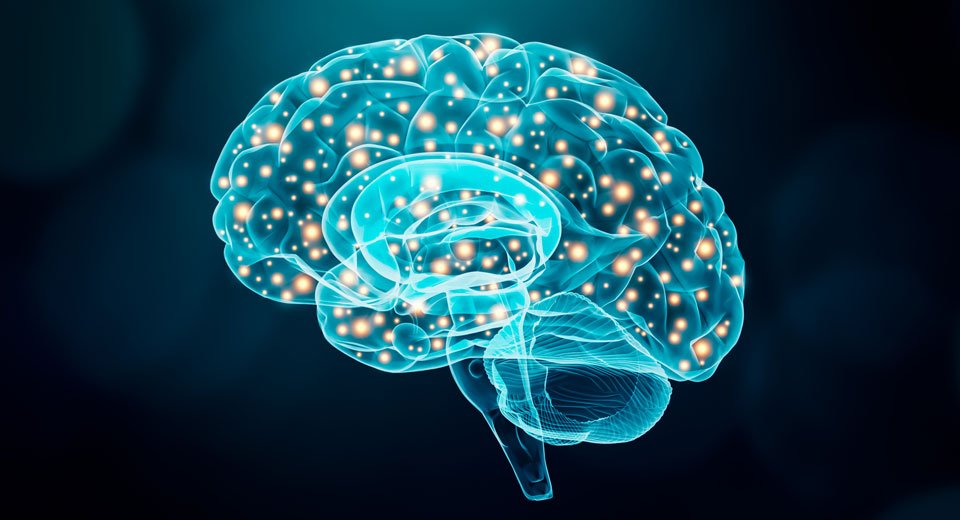Lifestyle habits may help you avoid brain decline

Exciting new research shows that just because you may have the biological signs of Alzheimer’s or other dementias, you may never actually lose brain function.
New research shows that some 100-year-olds defy the odds of getting Alzheimer’s disease, even though their brains and chromosomes contain indicators of that dementia.
A recent Dutch study published in JAMA Network Open looked at 330 centenarians who described themselves as mentally healthy. Assessments were done at the outset and annually, and other than a slight decline in memory, no significant deterioration of thinking skills was noted.
Examination of the brains of 44 participants who died during the study showed various amounts of amyloid and neuritic plaques and tau protein tangles, phenomena associated with Alzheimer’s disease. Yet the presence of these did not correlate with impaired thinking, the researchers said. Nor was the finding in some participants of two genetic mutations associated with Alzheimer’s disease.
Alzheimer’s disease affects 10 percent of people age 65 and it claims 40 percent of those 100 years old, said Michael Markowski, DO, of Neurologists of Cape Cod in Hyannis.
“Age is the number one risk factor,” he added.
Physical health, higher levels of education, intelligence, good genes and lifetime experiences may all have contributed to the very old seniors in the study maintaining their brain skills, Dr. Markowski said. He recommends people who wish to avoid Alzheimer’s disease to “stay physically active, socially active and mentally active.”
The Dutch researchers acknowledged the study’s limitations, including the participants not being a representative sample of their age group, but a relatively healthier, mentally active group. They also wrote that the overall finding of little mental decline during the study may have been exaggerated by participants dropping out as they neared death, when a decrease in brain skills often occurs. Also, the mean follow-up time of 1.6 years was short, they said.
Health experts’ thinking on the relationship of brain plaques to Alzheimer’s disease has evolved, Dr. Markowski said.
Doctors once confirmed diagnosis of Alzheimer’s disease by brain examination after death. In recent years, use of PET (positron emission tomography) scans allowed researchers and doctors to see the buildup of beta-amyloid in the brain of living patients. But a PET scan has its limits as a diagnostic method.
“It’s not a very useful tool if we get false positives 20-30 percent of the time,” Dr. Markowski said.
“We felt Alzheimer’s was primarily caused by these amyloid plaques,” he continued. However, research has shown “there’s plenty of people who have these plaques but have no clinical signs of Alzheimer’s disease.”
In animal studies, “clearing them of amyloid plaques did not improve brain function,” Dr. Markowski said. “In humans, medicines targeting beta-amyloid have not been effective.”
Staying healthy and mentally engaged may build up what the Dutch researchers and some health experts describe as “cognitive reserve,” the ability to keep cognitive skills despite increasing damage to the brain. Dr. Markowski stressed the importance of lifelong cardiovascular health to lowering the risk of developing Alzheimer’s disease.
“What is good for the heart is good for the brain,” he said.
A heart-healthy diet, such as the Mediterranean diet, can be beneficial in staving off Alzheimer’s disease, but only if begun before middle age, he said. After that, the benefits decline. Most supplements sold as aiding brain health lack scientifically proven benefits, he added. There is no medical cure or powerful treatment for Alzheimer’s disease.
“We still only have two classes of medications, and they both have very modest benefit,” Dr. Markowski said.
Staying physically and mentally active remain the best safeguards against dementia. Just 30 minutes of physical exercise three times a week can improve memory, Dr. Markowski said. He lamented the COVID pandemic has deprived many seniors of the opportunities to socialize that they need to stay mentally fit, and said he was seeing significant decline as a result.
The good news from the Dutch study and others is that people can lower their risk.
“Even if people have a family history of Alzheimer’s disease, that doesn’t doom them to share the same fate,” Dr. Markowski said.
